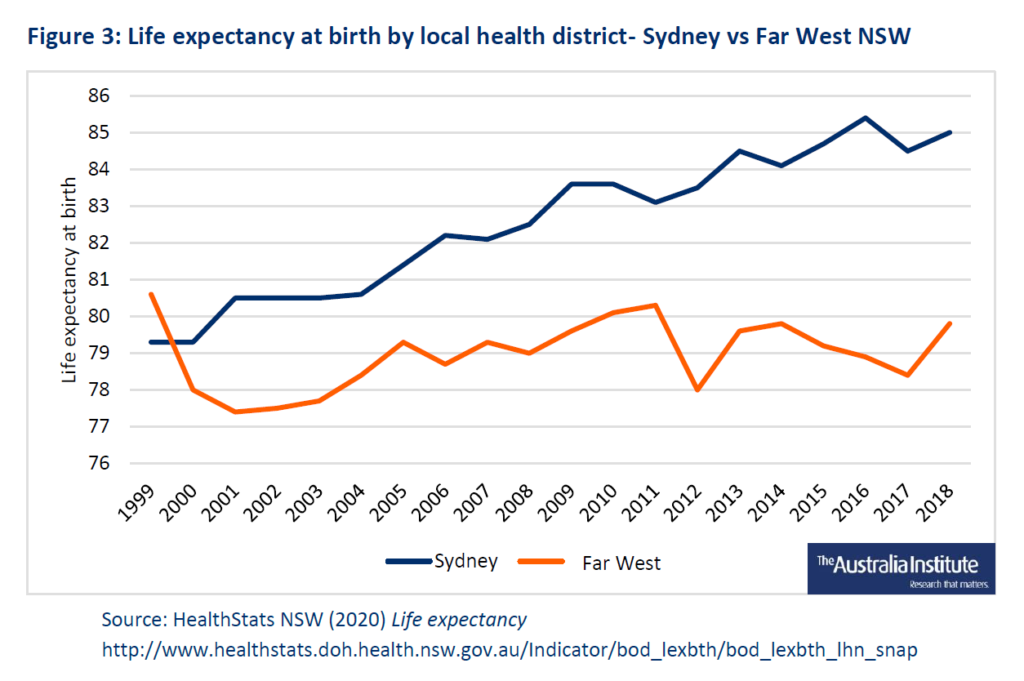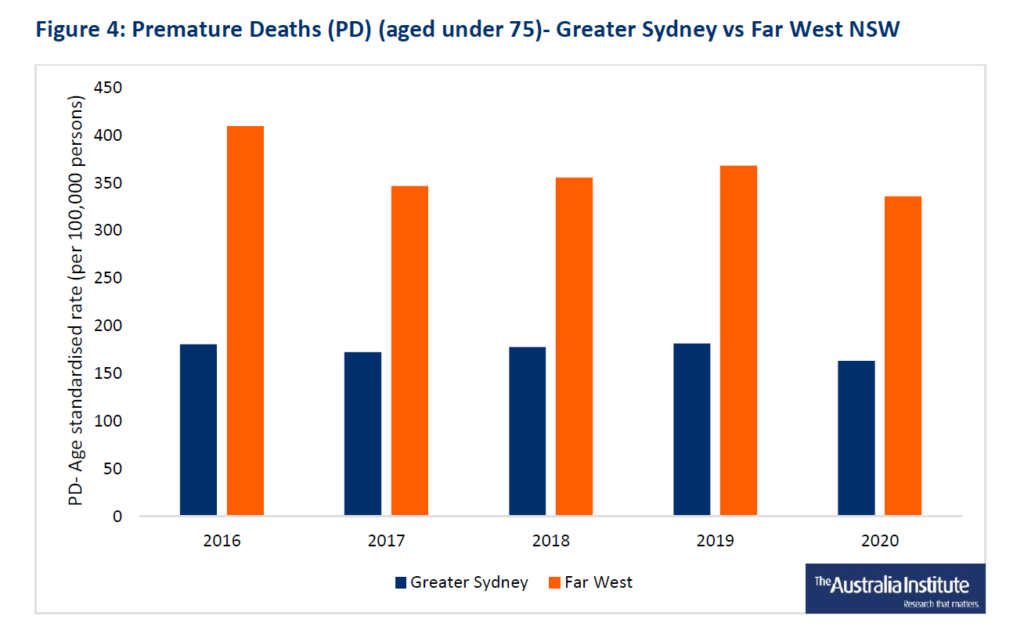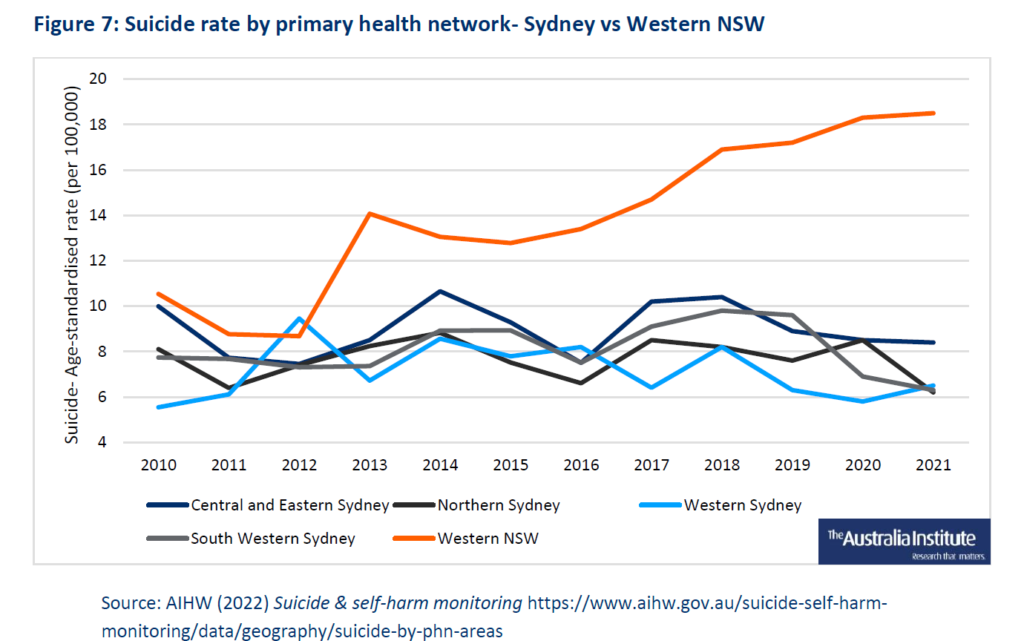Far-west NSW residents also die from more potentially avoidable causes, indicating a lack of access to care.
At the turn of the 21st century someone living in Broken Hill could reasonably expect to outlive their Sydney counterpart.
Twenty-three years later, that trend has dramatically reversed and Sydneysiders are outliving people in the far west of NSW by almost six years – a rural/urban gap that is widening and is replicated all over the country.
A new report from the Australia Institute – The Unlucky Country: Life expectancy and health in regional and remote Australia – called on state and federal governments to first of all “admit there is a problem”.
The report, the first in a series about the disparities between rural and urban health, focuses on NSW “both because it is Australia’s most populous state and because the disparity between the life expectancy of its regional and urban populations is a stark illustration of the wider national trend”.
It has two other major findings:
- Those in the far west are twice as likely to die prematurely compared with those in Sydney, and “potentially avoidable” deaths are 2.5 times more likely
- Suicide is twice as likely in the far west than in Sydney, with rates trending up.

“Overall, people die of the same causes in urban and remote parts of NSW,” wrote Kate McBride, the Australia Institute’s parliamentary liaison officer and author of the report.
“A comparison of the top causes of death in each area reveals that the top 10 are almost identical. However, regional and remote people are dying younger and from preventable causes at much higher rates than those in Sydney. Deaths considered ‘potentially avoidable’ are more than two and a half times as common in the far west than in the state’s capital.
“The similarity in causes of death suggests that the factors driving lower life expectancy in the far west are not due to different physical conditions or different lifestyles, but to how causes of death are prevented and managed.”

Suicide rates
Despite the upwards trend in suicide in far west NSW, the data also shows a 25% lower rate of hospitalisations for mental health issues, “indicating a lack of access to these services”, wrote Ms McBride.

A 2022 NSW Parliamentary Inquiry into health outcomes and access to services in regional and remote NSW came up with 22 findings and 44 recommendations, concluding that “residents of rural, regional and remote New South Wales have poorer health outcomes and inferior access to health and hospital services, and face significant financial challenges in accessing these services, compared to their metropolitan counterparts”.
Ms McBride wrote that the situation in regional NSW “reflects a wider national trend: people living in regional and remote Australia are dying earlier than they should and are doing so from causes that might have been prevented were sufficient health services available to them”.
“The gap between city and country is already unacceptable, and it is getting worse,” she wrote. “While there will be no silver bullet to address the situation, the first step to addressing a problem is admitting there is one.”





